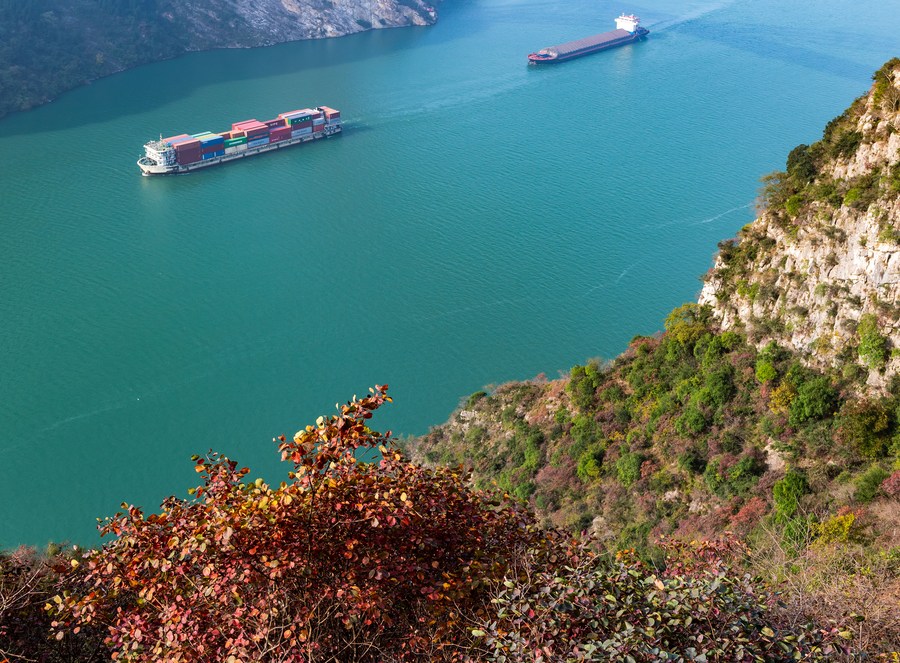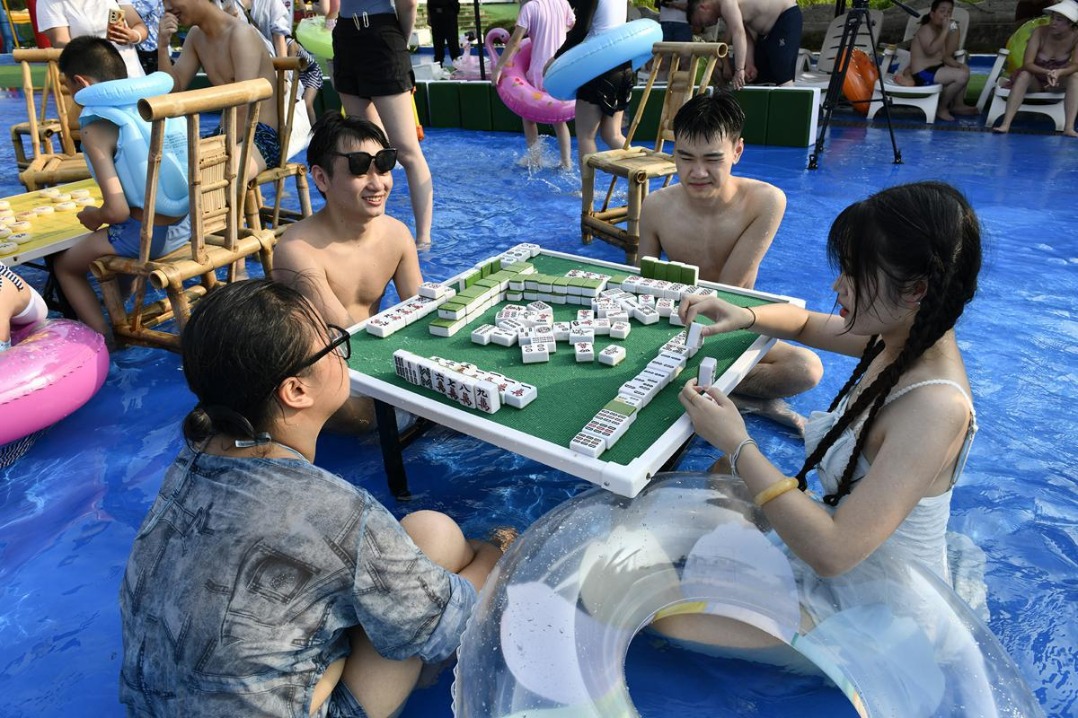Environment of Yangtze changes course for better


China's consistent efforts to protect the Yangtze River have helped Asia's longest watercourse turn the corner on conservation, a senior official at the Ministry of Ecology and Environment said.
Xu Chong, head of the ministry's bureau that oversees the river, also said the marked environmental improvement in the waterway has been done in parallel with development of the Yangtze River Economic Belt.
As a key indicator of the achievement, the Yangtze last year saw the quality of water at all monitored sections in its mainstream rated at Grade II or above. Grade II is the second highest in the five-tier assessment system.
"The entire Yangtze basin unprecedentedly got rid of water below Grade V (the poorest quality) by the end of 2020," he said in an exclusive interview with China Daily.
According to the ministry's 2015 environmental quality bulletin, only 45.2 percent of the monitored sections in the Yangtze's mainstream had water quality of Grade II or above.
In the entire basin, 3.1 percent of monitored sections were found to have black and bad-smelling water of the poorest quality.
The turning point for the Yangtze's environmental health came on Jan 5, 2016, when President Xi Jinping presided over a national conference in Chongqing about the Yangtze River Economic Belt, according to Xu.
The Yangtze boasts a unique ecosystem, Xi said. To restore its ecology and environment will be an overwhelming task and no large-scale development will be allowed along the river at present and for a long period to come, Xi said at the time.
The Yangtze River Economic Belt covers all but two of the 11 regions the river flows through, with Qinghai province and the Tibet autonomous region being the exceptions. It also includes Zhejiang and Guizhou provinces, which are home to tributaries of the Yangtze.
Xi also presided over two other symposiums with the theme of promoting the development of the economic belt. One was in 2018 in Wuhan, Hubei province, and the other in 2020 in Nanjing, Jiangsu province.
Xu, from the Ministry of Ecology and Environment, said the trend of degrading the aquatic ecosystem in the Yangtze basin has been "preliminarily curbed" thanks to a series of measures taken in recent years.
In late 2018, the National Development and Reform Commission, the country's top economic planner, drafted a plan on conserving the river and eight campaigns were rolled out to remediate and protect the Yangtze. The campaigns included one to manage sewage drainage outlets and one to improve sections of the river with water quality below Grade V, Xu said.
Teams of experts were dispatched to cities in the 11 provincial regions covered by the economic belt. They provided tailored advice on services to clean up and protect the waterway, an initiative that has continued.
Efforts have also been made to remediate wildlife habitats and clear blockages that hinder the interconnection of natural waterways, Xu said.
These measures, together with a fishing moratorium initiated in 2019, have resulted in "a gradual restoration of the Yangtze's aquatic organisms", he said.
China implemented a full fishing ban in 332 conservation areas in the Yangtze basin in January of last year. The ban was extended to all the river's natural waterways this year.
In December, the Standing Committee of the National People's Congress adopted the Yangtze River Protection Law, the first legislation to cover a river basin in China.
The law states that a national mechanism will be established to guide and coordinate Yangtze conservation work.
"There has been broad consensus on Yangtze conservation," Xu said. "Despite the positive progress, we should be soberly aware that the situation remains grim for Yangtze conservation and remediation. The task is still arduous."
He said some areas in the basin have yet to build adequate environmental infrastructure. More efforts should also be made to improve sewage management in rural areas.
While governance over industrial pollution isn't yet satisfactory, the agriculture and livestock sectors have emerged as major contributors to pollution in some regions. With wetlands shrinking, blue-green algae blooms still frequently occur in some key lakes in the basin, Xu added.
He said the ministry will ramp up efforts for a top-level plan for systematic protection and remediation of the Yangtze's ecosystem in the next five years.
Its main focus will be enhancing the stability of the Yangtze's ecosystem. The plan will also set targets for waterway management, fish and aquatic vegetation, while promoting harmonious coexistence between humans and river's environment, he said.





































